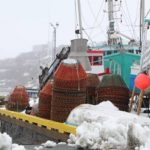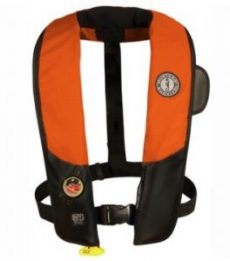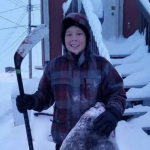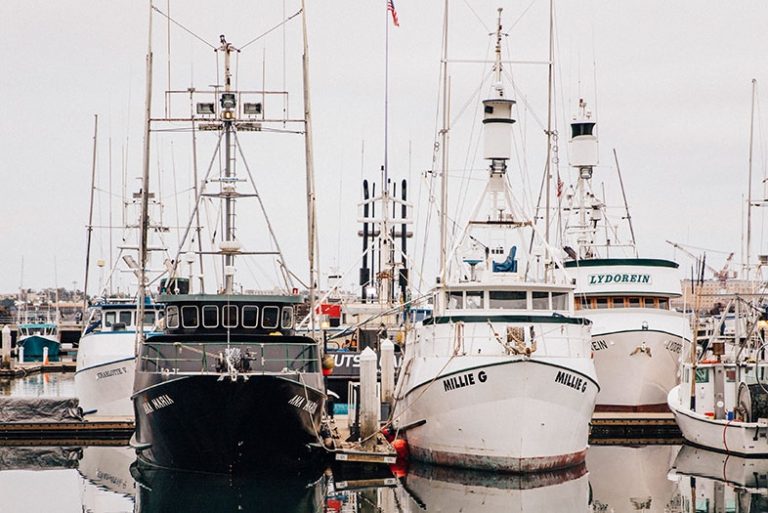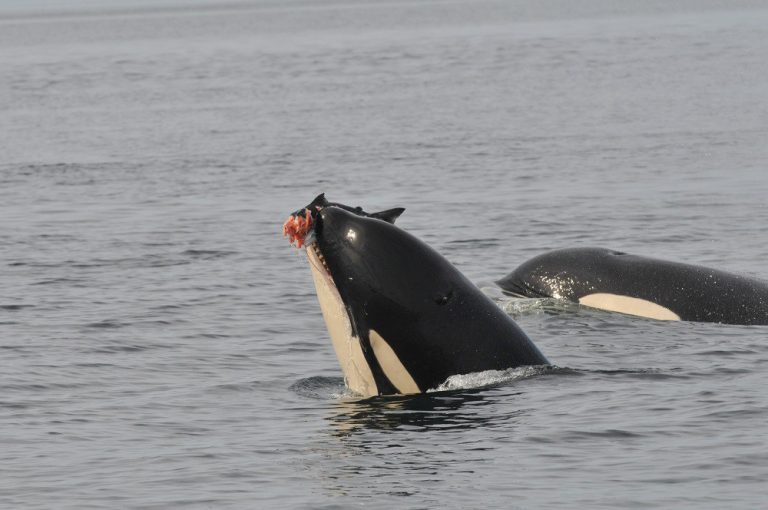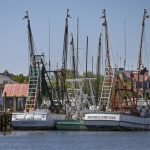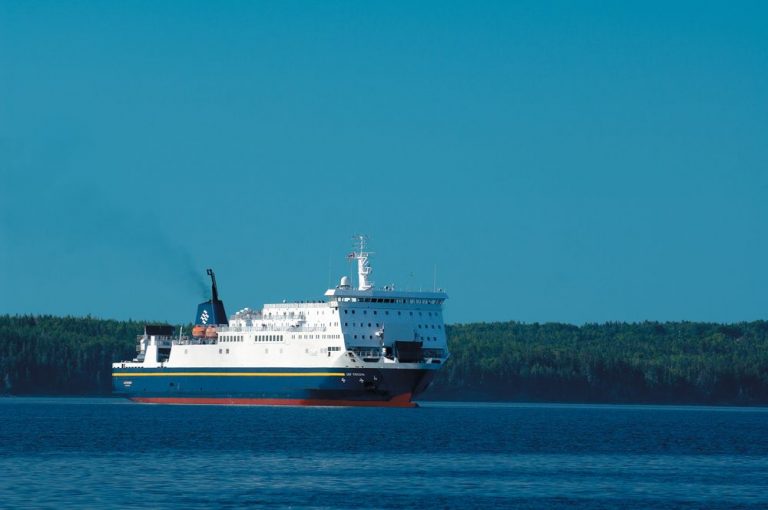Search Results for: Michigan
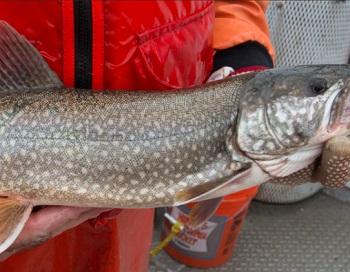
Commercial fishermen issue demand to start netting lake trout on Lake Michigan
Commercial fishermen have intensified their push to establish a commercial harvest of lake trout on the Wisconsin waters of Lake Michigan. Though the idea has been discussed since 2016 and in February a formal request was made by commercial interests, Department of Natural Resources fisheries managers have not introduced a proposal to allow netting for the species. As a result the Lake Michigan Commercial Fishing Board at two meetings this year reemphasized its strong desire for action on the topic. “It’s absolutely time (for a commercial lake trout rule to be implemented),” said Charlie Henriksen, a commercial fisherman from Sturgeon Bay and chairman of the board. “I mean there’s just no reason that this isn’t happening.” >click to read< 12:13
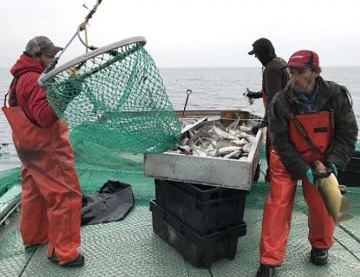
Inland Fisheries: Michigan Fish Producers Association says it’s settled lawsuit with DNR
The Michigan Fish Producers association has said its class-action lawsuit against the state Department of Natural Resources has reached a settlement. Details of the settlement have yet to be made public. The fish producers association sued the DNR over regulations that producers claimed interfered with their livelihoods. Michael Perry is an attorney who represents the association. Although the settlement amount is still undisclosed, Perry said commercial fishers are satisfied with it. “The association’s board of directors, members who participated in that were pleased with the result of the mediation,” said Perry. >click to read< 16:23
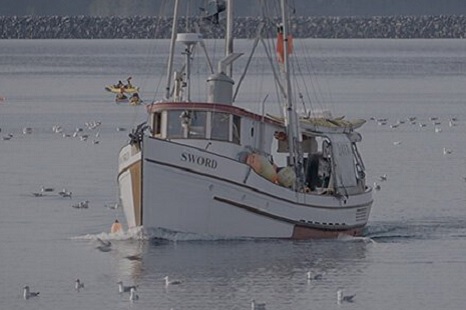
An Alaskan fish story, with a longline to Midland, Michigan
“It started with me and my mom commercial fishing together on an adventure together up in Alaska. I needed a deckhand and I didn’t have one, and I called my mom up. … She was in her mid-60s and she was up for it.” That was over ten years ago. For the past four and a half years, Caven and his mother, LoLita Pfeiffer, who lives in Midland, have sold fresh, wild-caught Alaskan fish to Midland. Fishing is normally a tradition passed down in families, but Caven had to learn fishing on his own. He spent nearly 15 years learning how to fish as a full-time fisherman, >click to read< 21:51
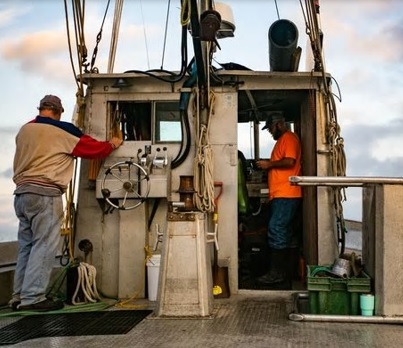
Big news for a major Michigan industry: commercial fishing.
Changes to the rulebook in January had fisheries warning the fresh catch may soon come from Canada. The DNR is now walking back those rules, requiring fishermen to cast their nets in water under 80 feet and suspending part of the whitefish season,,, “Everyone’s ecstatic.” A reversal from the DNR, effectively lifting the depth and seasonal restrictions the Williams’ and other commercial fisheries argue had upended their ability to make a living, means it’s now back to business as usual. >click to read< 07:42
Michigan House Bills Ban Commercial Perch Fishing on Great Lakes – Lakon Williams of the Bay Port Fish Co. expressed her concern. The company nets whitefish and perch in Saginaw Bay and Lake Huron. >click to read<

Lake Michigan Commercial Fisherman Robert E. Strege has passed away
Robert E. Strege, age 90, passed away on January 1, 2021. He was born on November 8, 1930 to parents Richard and Amelia (nee. Schultz) Strege in Jacksonport, WI. Robert proudly served in the United States Army during the Korean War, and for his honorable service, was awarded the Purple Heart. Following his military service, Robert owned and operated his own commercial fishing company, called Robert Strege Fish Co., for many years. He caught chubs, perch, and whitefish, on his boat, >“The Palmer”<, on Lake Michigan. Robert will be remembered, as a loving, hardworking man that took care of his family and will be dearly missed. >click to read< 14:47
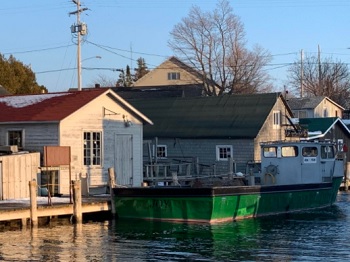
Gloves Come Off In Fight Over Commercial Fishing In Michigan
The few commercial fishing businesses that remain in Michigan are suing the state’s Department of Natural Resources over changes to industry rules. They say the new provisions will make commercial fishing all but impossible. The lawsuit, filed by the Michigan Fish Producers Association, claims the actions of the state threaten to deprive its members and their employees of their livelihoods. “Here in Leland, you can’t fish,” says Joel Petersen, the last state-licensed fishermen working out of Fishtown. >click to read< 09:35
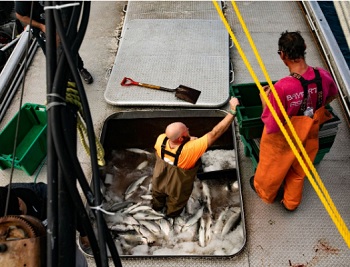
Michigan’s dying commercial fishing industry fears state fishery bills will be final nail in the coffin
The once vibrant commercial fishing industry in Michigan has dwindled down from thousands of businesses to just 13 full-time fisheries. And those that are left are afraid legislation in a state Senate committee could be the end of the industry all together. That their mom-and-pop style operations would move out of the Great Lakes for good, and leave the door open only for large, investor-style corporations to take over the industry. This is all part of an ongoing battle in the Great Lakes between commercial fishing and sport fishing. >click to read< 15:02
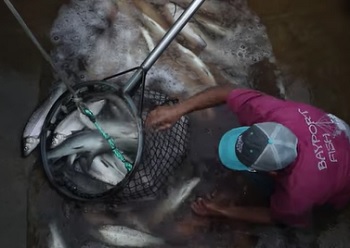
Michigan House Bills Ban Commercial Perch Fishing on Great Lakes
Lakon Williams of the Bay Port Fish Co. expressed her concern. The company nets whitefish and perch in Saginaw Bay and Lake Huron. “I knew that that was going to happen, unfortunately we’ve been trying since the summertime to get through to the House of Representatives that this isn’t what we want and this isn’t what we need, and that this will put us out of business. It’s just kind of fallen on deaf ears,” she said. Video, >click to read< 10:16
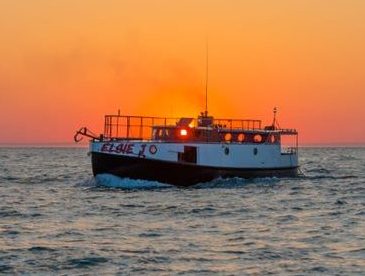
Elsie J. – A 1945 Great Lakes fishing tug gets a new life as a tour boat in Michigan
After Chris Jensen returned home to South Haven, Mich., from World War II with a broken back, he was told he might never walk again, let alone resume his commercial fishing career. But Jensen recovered and soon bought a 48-foot fishing tug that plied the waters of eastern Lake Michigan for more than three decades. He named the boat Elsie J for his daughter. The ship’s crew pulled in loads of whitefish, perch and oily chubs, which were popular for smoking. >click to read< 10:59
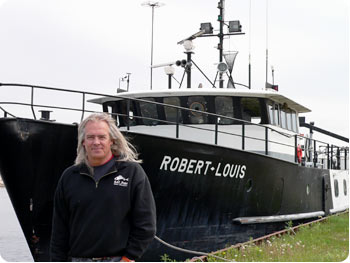
I’m a 7th-generation Michigan commercial fisherman. 13 are left.
I am a seventh generation commercial fisherman on Lake Michigan. Our family has been fishing Michigan waters since 1826, since before Michigan was a state.,,, My Great, Great Grandfather Schyuler was one of the great pioneer fishermen and owned all of what is now J.W. Wells State Park in the Upper Peninsula. At one time back in the 1980’s our company, Ruleau Bros., employed over 100 people and produced over 50 million pounds of fish. We have about 15 employees today, due to continuing over-regulation by the DNR, invasive species, and down to having only one fish left to take … the whitefish. >click to read< 10:54
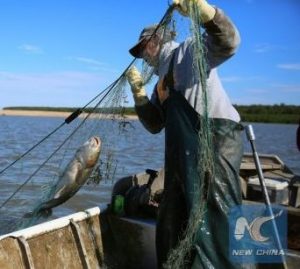
Illinois Lt. Gov: Michigan’s carp money would be too little, too late
It’s not that Illinois is being rude, or even dismissive, it’s just that Michigan’s promise of $8 million to help keep Asian carp in the Illinois River doesn’t solve today’s problem, according to the Rauner administration. Illinois Lt. Gov. Evelyn Sanguinetti said Illinois needs to focus on its Asian carp problem immediately.,,“He indicated that we need to act now.,,, “Imagine if we were able to take the money and double down on our commercial fishing. That’s where we are going to see a bigger impact,” Sanguinetti added. >click to read<16:35
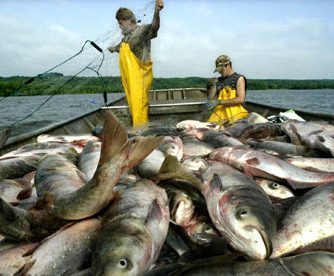
Illinois to Michigan: Put your money where the carp is
Gov. Bruce Rauner said today that Illinois is happy to accept $8 million from the State of Michigan to put toward the fight to keep Asian carp out of the Great Lakes — provided the funds can be used now to advance the effort. Unfortunately, Michigan Gov. Rick Snyder’s current offer of financial assistance isn’t applicable until 2028. Rauner sent a letter today to Snyder with a counterproposal to continue the fight against Asian carp. The Illinois governor said the best way to reduce the risk of Asian carp invasion is to enhance commercial fishing strategies in the Upper Illinois River and the Alton, LaGrange and Peoria pools today. >click to read<12:37
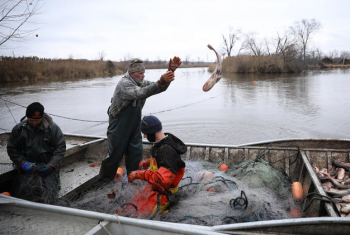
‘Carp cowboys’ round up invasive Asian carp as Illinois, federal officials debate costly measures to protect Lake Michigan
In Illinois, current strategies have successfully reduced the leading edge of the Asian carp population by 93 percent since 2012, according to sonar scans. By removing more than 1 million pounds of carp annually in the past several years, the state has contained the adult population to the Dresden Island Pool, 47 miles away from Lake Michigan, near Minooka, Ill. But computer modeling suggests it’s not enough. To repel Asian carp, about four times that amount needs to be removed from downstream.,, On Tuesday, near the banks of Sheehan Island where Asian carp like to take refuge, state-contracted fisherman Shawn Price gunned the engine of his boat while his father hit a wooden stick on the side. Minutes later, Shawn Price began pulling in nets chock-full of Asian carp. >click to read<09:01
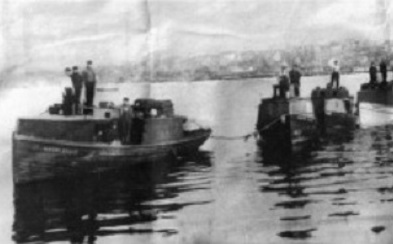
Help us learn more about the “Michigan Bears” and the men who fished aboard Gloucester’s oldest fishing vessel, the Phyllis A.
On September 6, 1920 five small vessels arrived in Gloucester Harbor and tied up in Smith Cove near Rocky Neck. The little boats and the 20 men who crewed them, had spent 24 days traveling 2,200 miles from Charlevoix, Michigan to start a new life for them selves and their families, doing a method of fishing that had been introduced, but not welcomed, by the fishing industry on the east coast of the Atlantic in the late 1800’s,,, gill net fishing, used here in Gloucester and the East coast to this day. >click to read<21:21
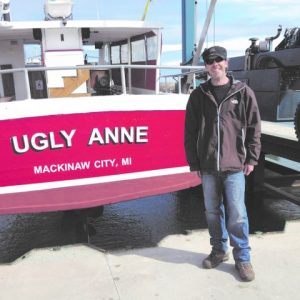
Why this Maine lobster boat is cruising Michigan’s Straits of Mackinac
If you’ve seen the Ugly Anne’s flashy red hull cruise past you in the Straits of Mackinac, you’ll be forgiven if you swivel your neck for a second look. What’s a refurbished Maine lobster boat doing carrying tourists in Michigan?,,, Enter the Ugly Anne. A lobster boat since 1975, she’d been used to haul in winter delicacies in the Gulf of Maine. Summers saw the wooden vessel hauling charter fishing groups.,, And the Ugly Anne still has a following in her own right. She was well-known in Perkins Cove, Maine, >click to read<11:28
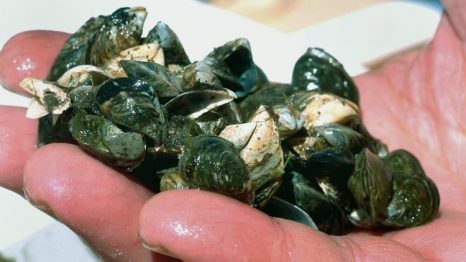
Lake Michigan has become dramatically clearer in last 20 years — but at a steep cost
Decades ago, Lake Michigan teemed with nutrients and green algae, casting a brownish-green hue that resembled the mouth of an inland river rather than a vast, open-water lake. Back then, the lake’s swampy complexion was less than inviting to swimmers and kayakers, but it supported a robust fishing industry as several commercial companies trawled for perch, and sport fishermen cast their lines for trout. But in the past 20 years, Lake Michigan has undergone a dramatic transformation. >click here to read< 16:38
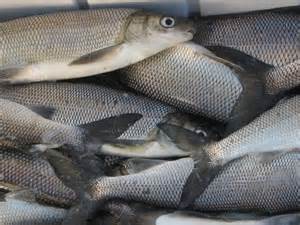
Inland Fisheries: DNR proposes a study on the effect of commercial gill nets on Lake Michigan
The Department of Natural Resources has proposed a study of the impacts of commercial gill netting on non-target sport fish such as chinook salmon and brown trout in the Wisconsin waters of Lake Michigan. Commercial fishers in Zone 3 have lobbied the agency for the ability to use large mesh gill nets to catch lake whitefish. The gear has been prohibited in the zone, which covers the Wisconsin waters of Lake Michigan south of Bailey’s Harbor, to prevent bycatch and mortality of sport fish as well as user conflicts. However, large mesh gill nets are allowed for commercial fishing in northern Lake Michigan and part of Green Bay. Commercial fishers have requested the same opportunity in Zone 3. click here to read the story 15:11
NOAA seeks jurisdiction of Lake Michigan waters next to Wisconsin – Protecting shipwrecks or shipwrecking the economy?
 The National Oceanic and Atmospheric Administration (NOAA) is preparing to designate the waters of Lake Michigan next to Manitowoc, Sheboygan, and Ozaukee counties as a national marine sanctuary, and that has set off a howl of protest that the state is surrendering its jurisdictional authority to the federal government, which critics say could threaten commercial fishing and coastal recreational activities, among other things. Meanwhile, both the Trump administration and Congress are looking into the national marine sanctuary program and into what some say are its overreaching and unilateral power to impose restrictions in the sanctuary areas. click here to read the story 09:41
The National Oceanic and Atmospheric Administration (NOAA) is preparing to designate the waters of Lake Michigan next to Manitowoc, Sheboygan, and Ozaukee counties as a national marine sanctuary, and that has set off a howl of protest that the state is surrendering its jurisdictional authority to the federal government, which critics say could threaten commercial fishing and coastal recreational activities, among other things. Meanwhile, both the Trump administration and Congress are looking into the national marine sanctuary program and into what some say are its overreaching and unilateral power to impose restrictions in the sanctuary areas. click here to read the story 09:41
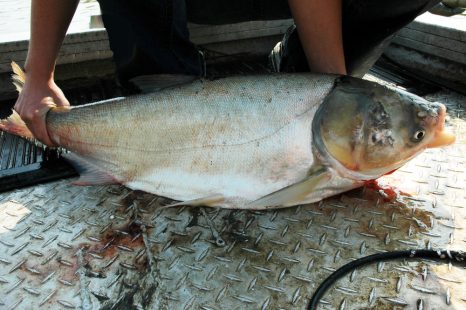
REWARD!! Michigan DNR Offers Big Reward For Plan To Block Invasive Fish
If the fishing world had a most-wanted list, Asian carp surely top it. There are plenty of despised invasives plaguing U.S. waters, but how many of them have a $1 million dollar bounty on their heads? That’s what the Michigan Department of Natural Resources just dropped on the table. Show the agency a viable plan for stopping those silver and big head carp from reaching the Great Lakes and you could be eligible for a sweet payday. In case you haven’t already heard the tale, Asian carp are prolific breeders that can reach 50-pounds. The filter-feeding invasives consume massive amounts of the tiny plants (phytoplankton) and animals (zooplankton) that feed native forage species, along with juvenile sport fish such as walleye and yellow perch. Disrupting the food web can wreak havoc on local fisheries. Read the story here with link to DNR 12:21
Invasive Asian carp less than 50 miles from Lake Michigan
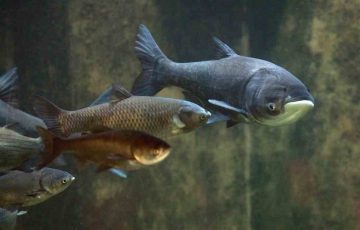 The news is mixed as Great Lake states and the federal government continue to devote money and brainpower to stopping a potential Great Lakes ecological disaster — invasive Asian carp species making their way from the Mississippi River into Lake Michigan. First the good news: The leading edge of the mass of bighead and silver carp hasn’t made much progress lately up the Mississippi and connected rivers toward Lake Michigan. Now the bad news: The younger fish — juveniles — are moving closer, the evidence shows. And they can do more damage. “The bottom line is that the juvenile front is advancing, and made a big jump last year,” said Joel Brammeier, president and CEO of the nonprofit Alliance for the Great Lakes. “And we still don’t have a permanent solution in place that’s going to solve this problem.” Read the story here 08:59
The news is mixed as Great Lake states and the federal government continue to devote money and brainpower to stopping a potential Great Lakes ecological disaster — invasive Asian carp species making their way from the Mississippi River into Lake Michigan. First the good news: The leading edge of the mass of bighead and silver carp hasn’t made much progress lately up the Mississippi and connected rivers toward Lake Michigan. Now the bad news: The younger fish — juveniles — are moving closer, the evidence shows. And they can do more damage. “The bottom line is that the juvenile front is advancing, and made a big jump last year,” said Joel Brammeier, president and CEO of the nonprofit Alliance for the Great Lakes. “And we still don’t have a permanent solution in place that’s going to solve this problem.” Read the story here 08:59
Video Report: Ride along with the largest commercial fishing operation in Michigan
 A major player in Michigan’s commercial fishing industry, Serafin Fisery, is located in Pinconning. Dana Serafin runs the business with his father, Jerry. Jerry tells us, he’s been doing this since he was a boy in the 1960s and Dana’s been on his deck since he was nine-years-old. “Now it’s a little bit harder, you gotta pay the bills! When you’re nine, you don’t care,” said Dana. The Serafin family has a license for more than 80 fishing nets. They leave these trap nets in specific locations, 100-120 feet below the surface of Lake Huron. “He is the largest producer in the state of Michigan,” said Tom Goniea, senior fish biologist and commercial fish administrator for the Michigan Department of Natural Resources. Goniea said most of Dana’s sales stay right here in Michigan. Watch the video, read the rest here 10:14
A major player in Michigan’s commercial fishing industry, Serafin Fisery, is located in Pinconning. Dana Serafin runs the business with his father, Jerry. Jerry tells us, he’s been doing this since he was a boy in the 1960s and Dana’s been on his deck since he was nine-years-old. “Now it’s a little bit harder, you gotta pay the bills! When you’re nine, you don’t care,” said Dana. The Serafin family has a license for more than 80 fishing nets. They leave these trap nets in specific locations, 100-120 feet below the surface of Lake Huron. “He is the largest producer in the state of Michigan,” said Tom Goniea, senior fish biologist and commercial fish administrator for the Michigan Department of Natural Resources. Goniea said most of Dana’s sales stay right here in Michigan. Watch the video, read the rest here 10:14
Michigan state officials recommend against Great Lakes fish farms
 Three state agencies released a report recommending Michigan not pursue commercial fish farming operations in the Great Lakes because of several environmental and economic risks. The state departments of agriculture and rural development, environmental quality and natural resources released a report Wednesday on the controversial topic and proposals regarding net-pen aquaculture — a practice that involves raising fish in underwater nets, or solid structure cages serving as pens, also known as fish farming — in northern Lakes Huron and Michigan. The agencies concluded the report by urging the state not to pursue commercial net-pen aquaculture in the Great Lakes at this time. Read the rest here 11:31
Three state agencies released a report recommending Michigan not pursue commercial fish farming operations in the Great Lakes because of several environmental and economic risks. The state departments of agriculture and rural development, environmental quality and natural resources released a report Wednesday on the controversial topic and proposals regarding net-pen aquaculture — a practice that involves raising fish in underwater nets, or solid structure cages serving as pens, also known as fish farming — in northern Lakes Huron and Michigan. The agencies concluded the report by urging the state not to pursue commercial net-pen aquaculture in the Great Lakes at this time. Read the rest here 11:31
“Concentrated fish poo is just not Pure Michigan,” Sen. Jones works to ban fish farming in the Great Lakes
 “In Michigan, legislators have a Constitutional duty to protect our Great Lakes,” said Jones, R-Grand Ledge. “By allowing commercial fish farming we can say goodbye to our Pure Michigan status and hello to an undrinkable Toledo water supply.” Jones said commercial fish farms in the Great Lakes are all risk and no reward. These are proven sources of pollution, invasive species, disease, and fugitive fish escaping to wreak havoc on our Great Lakes fisheries. Read the rest here 07:06
“In Michigan, legislators have a Constitutional duty to protect our Great Lakes,” said Jones, R-Grand Ledge. “By allowing commercial fish farming we can say goodbye to our Pure Michigan status and hello to an undrinkable Toledo water supply.” Jones said commercial fish farms in the Great Lakes are all risk and no reward. These are proven sources of pollution, invasive species, disease, and fugitive fish escaping to wreak havoc on our Great Lakes fisheries. Read the rest here 07:06
Michigan Considers Controversial Commercial Net-Pen Aquaculture in Huron and Michigan
 Several State agencies are looking at proposals to allow commercial net-pen aquaculture on the Great Lakes. The practice is controversial because of environmental concerns. WDET’s Amy Miller spoke with Tammy Newcomb; Senior Policy Advisor for the Department of Natural Resources. She says Ontario has allowed a few net-pens near Georgian Bay and now there are two Michigan proposals. This week the State is holding two public hearings on the two Great Lakes net-pen aquaculture proposals. Listen to the report here 08:29
Several State agencies are looking at proposals to allow commercial net-pen aquaculture on the Great Lakes. The practice is controversial because of environmental concerns. WDET’s Amy Miller spoke with Tammy Newcomb; Senior Policy Advisor for the Department of Natural Resources. She says Ontario has allowed a few net-pens near Georgian Bay and now there are two Michigan proposals. This week the State is holding two public hearings on the two Great Lakes net-pen aquaculture proposals. Listen to the report here 08:29
Michigan Department of Natural Resources considers commercial fishing in Lake Huron
 Michigan is exploring the possibility of commercial fishing for whitefish in southern Lake Huron. The state Department of Natural Resources says it issued a research permit to a commercial fisher to explore populations. Starting this month, large mesh trap nets will be allowed in experimental fishing grounds several miles south of Harbor Beach and north of Port Sanilac. The Michigan waters of southern Lake Huron haven’t been commercially fished in five decades, but commercial fishing is established in Canadian waters. Read the rest here 10:50
Michigan is exploring the possibility of commercial fishing for whitefish in southern Lake Huron. The state Department of Natural Resources says it issued a research permit to a commercial fisher to explore populations. Starting this month, large mesh trap nets will be allowed in experimental fishing grounds several miles south of Harbor Beach and north of Port Sanilac. The Michigan waters of southern Lake Huron haven’t been commercially fished in five decades, but commercial fishing is established in Canadian waters. Read the rest here 10:50
Michigan commercial fishing harvest’s value rises in 2014
 The commercial fishing industry’s total catch last year in Michigan was down slightly, but its cash value was up. Officials say the total harvest was 200,000 pounds below that of 2013. But the gross dockside value rose $300,000, or more than 5 percent. That’s largely because of a jump in the wholesale price of whitefish. The popular species’ value has risen more than 50 percent in the past two years. Read the rest here 08:27
The commercial fishing industry’s total catch last year in Michigan was down slightly, but its cash value was up. Officials say the total harvest was 200,000 pounds below that of 2013. But the gross dockside value rose $300,000, or more than 5 percent. That’s largely because of a jump in the wholesale price of whitefish. The popular species’ value has risen more than 50 percent in the past two years. Read the rest here 08:27
Michigan officials weigh idea of Great Lakes fish farming
 The state Department of Environmental Quality has heard from two operators interested in raising rainbow trout in netted enclosures, spokesman Brad Wurfel told The Associated Press. “We’re going to put the absolute best minds available around the table and give it due consideration,” he said. “But we haven’t forgotten that job one is protecting Michigan’s waters. We’ve been trying to be very clear that the bar here would be incredibly high.” Read the rest here 15:04
The state Department of Environmental Quality has heard from two operators interested in raising rainbow trout in netted enclosures, spokesman Brad Wurfel told The Associated Press. “We’re going to put the absolute best minds available around the table and give it due consideration,” he said. “But we haven’t forgotten that job one is protecting Michigan’s waters. We’ve been trying to be very clear that the bar here would be incredibly high.” Read the rest here 15:04
Diabetes drug found in Lake Michigan could (?) harm fish, researchers say.
 THERE is more than one way to measure prescription drug use. The most direct method is to count prescriptions filled by pharmacies. Or you could test the treated water coming out of sewage treatment plants. Other commonly found substances include caffeine; sulfamethoxazole, an antibiotic; and triclosan, an antibacterial and antifungal found in soap and other consumer products. Read the rest here 17:37
THERE is more than one way to measure prescription drug use. The most direct method is to count prescriptions filled by pharmacies. Or you could test the treated water coming out of sewage treatment plants. Other commonly found substances include caffeine; sulfamethoxazole, an antibiotic; and triclosan, an antibacterial and antifungal found in soap and other consumer products. Read the rest here 17:37
Great Lakes commercial fisheries issues to be discussed at Michigan Fish Producers conference
and Michigan State University Extension will be coordinating a daylong, educational program on current issues affecting the Great Lakes commercial fishing industry. Topics include changing water levels, prey fish populations, sea lamprey control, contaminants, sustainability and purchasing local fish. The program will run from 9 a.m. to 4 p.m. on Saturday, Jan. 31 as part of the Michigan Fish Producers Association Annual Conference at the Grand Traverse Resort in Acme, Michigan Read more here 15:05
Huge USF&WS investigation in northern Michigan and Northeastern Wisconsi- probe Great Lakes commercial fishing – Video
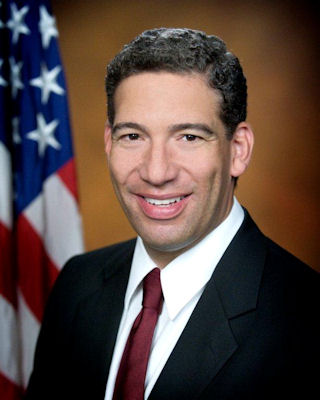 The targets included members of numerous tribes in Wisconsin and Michigan, including the Keweenaw Bay Indian Community, the Red Cliff Band of Chippewa Indians and the Grand Traverse Band of Ottawa and Chippewa Indians. The investigation also includes non-natives. Read the rest here 10:35
The targets included members of numerous tribes in Wisconsin and Michigan, including the Keweenaw Bay Indian Community, the Red Cliff Band of Chippewa Indians and the Grand Traverse Band of Ottawa and Chippewa Indians. The investigation also includes non-natives. Read the rest here 10:35

































